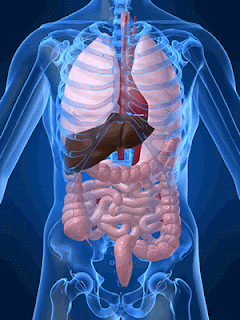The risk for
developing alcoholism is influenced by a person's genes and lifestyle
behaviors. Alcoholism is a chronic disease that lasts for a lifetime. If
diagnosed and treated early, however, alcoholism may be completely cured and
severe complications prevented.
Chronic
alcohol abuse increases a person's risk for developing serious health problems,
such as liver disease, high blood pressure, heart disease, stroke,
cancer (especially cancer of the esophagus, mouth, and throat), and
pancreatitis.
Approximately
two million Americans suffer from liver damage caused by alcohol abuse. About
10 to 20 percent of heavy drinkers will develop cirrhosis of the liver, which
is characterized by scarring of the liver and causes irreversible damage.
If heavy
drinkers do not stop drinking, cirrhosis can cause poor health and, ultimately,
death. In addition to cirrhosis, heavy drinkers may suffer from chronic liver
disease or alcoholic hepatitis.
Damage to
the liver can lead to problems with blood sugar levels. When alcohol is present
in the body, the liver works to metabolize it. Because the liver is busy
metabolizing alcohol, it is often not able to adequately maintain blood sugar
levels, which may result in hypoglycemia (low levels of blood sugar).
Hypoglycemia
is most likely to occur in individuals who have not maintained an adequate diet.
When it occurs, the brain is not able to receive the energy it needs to
function, and symptoms such as hunger, weakness, headache, tremor, and even
coma (in severe cases) may occur.
Chronic
alcohol abuse can lead to poor nutritional status. Chronic heavy drinkers do
not eat adequate amounts of food because of the high caloric content of
alcohol. This prevents them from getting the required vitamins and minerals to
maintain health and well-being.
Furthermore, when a person consumes large
amounts of alcohol, it impedes or halts the digestion of food, as alcohol
decreases the secretion of digestive enzymes from the pancreas.
Alcohol also
inhibits the absorption of nutrients into the blood. This
decrease in digestion and absorption over a long period of time can lead to malnutrition.
To be continued......STAY TUNE
CRADITE TO >>> http://www.diet.com/
CRADITE TO >>> http://www.diet.com/









0 comments:
Post a Comment